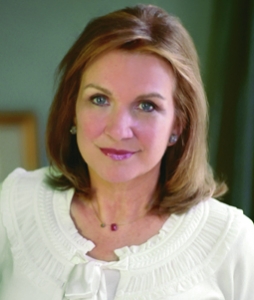
Last week at the BIO 2008 conference, Amgen hosted a media event to discuss the importance of innovation in medicine and the support needed to achieve success. The keynote speaker was Elizabeth Edwards, who shares her husband’s (former Sen. John Edwards) commitment to improving healthcare.
She sees the cause in a nation with a fast-food mentality. We’re a nation that wants what it wants and wants it now. But we don’t save, invest or plan for the future. She wants us to adopt a long-term planning strategy as a nation and this will require collaboration of all the players in the system if it is to produce a win. And a win requires winners at all levels although acknowledging that to win, all players will need to give up something along the way.
While not all problems with heathcare can be solved with collaboration, it is a necessary first step with a nation that won’t even wait for french fries.
What is holding us back? There is little will to analyze the efficiencies of our system. Collaboration is viewed suspiciously at all levels. There is a lack of common goals. Mrs. Edwards believes that to achieve our goals, we need to have long-range planning, an ability to take risks and a system that is patient-centered.
So, what would a win look like?
A Win for Citizens
A win for citizens/patients would be healthcare made available at an obtainable cost with assured access to (reasonable) choices. Our government needs to understand this.
Mrs. Edwards said “The disease holds all the cards and the researchers and doctors are the ones that get to play. I don’t get to know most of the rules. But I am not only willing to play, I need to play.”
A Win for Healthcare Providers
A win for healthcare providers would be healthcare with a manageable caseload — for a reduction of errors — and at a reasonable compensation. “This depends on a universality of paying patients,” said Mrs. Edwards.
Right now, our system shifts the cost from the uninsured to the insured. This is generally ignored in discussions of healthcare as though universal healthcare would mean millions of people suddenly getting care they wouldn’t have otherwise.
A Win for Government
A win for the government would be healthcare that is not cost prohibitive for patients or the government. Joking that not even her husband John Edwards will touch it, Mrs. Edwards points out that no one is even discussing the looming crisis of long-term care for an aging population.
A Win for the Industry
A win for the pharma industry would be getting buy-in from the public (trust) with increased transparency.
So, how do we get all this?
Mrs. Edwards believes that we need a greater role by the federal government to make this happen.
First, we need increased funding of research by the NCI and NIH to get more innovation. However, the funds need to be doled out in a different manner. Under the current system, research grants typically to research proposals where the results are largely assumed (the established researchers). Mrs. Edwards noted that “If you look at the past, it is when people went in new directions that there are successes.”
Second, we need to improve reporting capabilities. The current system at the FDA relies on flawed (her words) system of self-reporting of effects. She also points to increased user fees that put stress on the FDA to earn those dollars. She wants to see more user fees used for reporting. She also wants to see more efforts at pursuing treatments that don’t just favor the more profitable ones.
In closing, Mrs. Edwards tells that her breast cancer has now metastasized to her bones. But she still feels lucky. Noting that “cancer does not care if you have insurance,” she points out that because she can afford better insurance and is near quality research facilities, she received the best in care. In many poor and rural areas, this would not be the case and she doesn’t see that as fair.
Everyone should hold out such hope.

If one is talking about collaboration, one also must talk about ways to improve collaboration among physicians, nurses, hospital leaders, and board members, all of whom have differint backgrounds, education, and outlooks.
Please visit my blog, http://healthcarecollaboration.com/blogto see how a practicing physician views collaboration